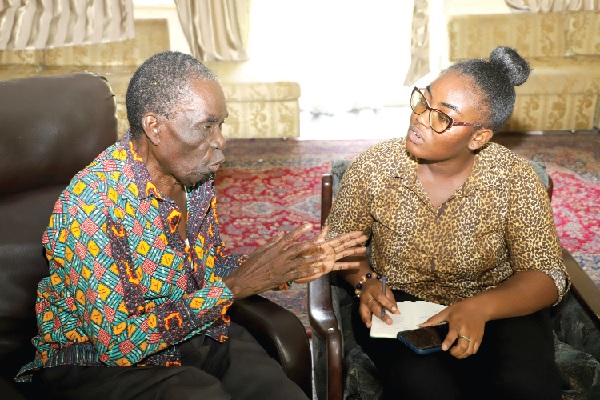
Reform rural and community banking concept — Pioneer advocates
A pioneer in the creation of rural and community banks, Kwaku Abiw Dougan, has called for reforms of the rural and community banking concept in the country to compel players in that sector to focus their attention on their core activities.
According to him the concept was modelled to, among other things, get rural and community banks to strictly focus their attention on their areas of jurisdiction and support economic activities by offering soft loans to medium and small-scale enterprises (MSMEs) while helping to reduce poverty among the people.
The rural and community banks are also meant to be one of the key channels to distribute funds to businesses in their localities.
They are also to educate and encourage positive entrepreneurial activities within the local communities.
It was observed that commercial banks, as they still do today, were not interested in investing or supporting small businesses in rural areas because of what they deemed too risky and unprofitable ventures.
Mr Dougan, in an interview with the Graphic Business, described the present phenomenon, where rural and community banks are, in one way or the other, competing with the ‘big’ commercial banks while neglecting the people for whom the bank was established as worrying because of the manner to which rural and community banks have, to a large extent, shifted from their core mandate at the expense of the people within their immediate surrounding.
He said it was unfortunate that the rural and community banks were gradually shifting from financing activities within their communities.
He said “These rural banks were set up in their respective communities to help people access finance for their commercial activities” adding that this was to help increase agricultural productivity and boost businesses to reduce poverty and ensure food security”.
Mr Dougan stressed the need for the central bank to devote some funds to support rural banks to enable them to live up to expectations.
“Also, a portion of funds released for government projects, such as the Planting for Food and Jobs (PFJ) and NABCO, could also be granted to the rural banks for effective development of the communities.
Formation of rural banks
Mr Dougan explained that a lot of difficulties were encountered during the formation of rural banks which started at Agona Nyakrom in the Central Region.
He said in the early days of the formation of the rural banks, one important factor considered was the provision of decent accommodation for a bank.
“At Nyakrom, a defunct bank was used as the premises to convince the people that it was a bank. There was the need to provide a policeman in front of the banks, a way of guaranteeing the people the safety of their money. To kick start was tough, as the people played a wait-and-see attitude,” he said.
He said the people of Elmina embraced the idea after he (Mr Dougan) had spoken to its leaders, adding: “Today, it is known as Kakum Rural Bank. This led to the establishment of rural banks at Asikuma, Biriwa, Agomanya, Krobo Odumase, Akim Kotoku and today, they are in every part of Ghana.”
Benefits to economy
He said if rural banks were made to operate within their mandate, as was originally envisaged, it could lead to the emergence of a credit system that will provide the needs of small farmers and other rural entrepreneurs who constitute a great majority of the country’s population, as well as eliminate the unscrupulous activities of money lenders from the rural banking system.
“A more effective and realistic approach to the credit problems of small farmers would be for every rural bank to be operated and managed by the local people who are familiar with the locality and the people. This is crucial because they are the ones best positioned to determine who is fit to take loans without having to ask for collateral.
He added that more private funds would also be available for agricultural credit as savings mobilised by these banks from private individuals would be on-lend to the rural economy.